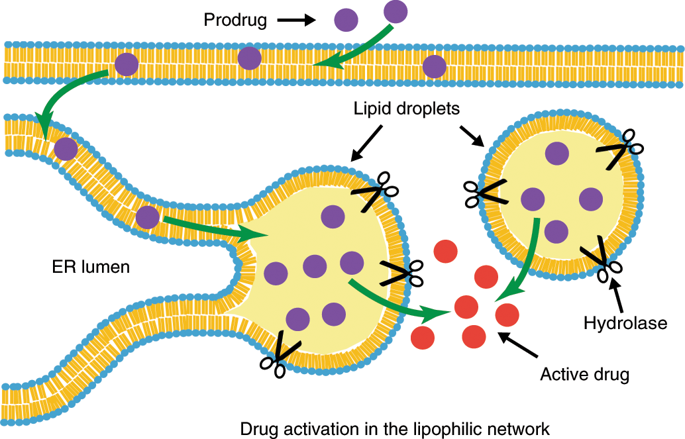Nature Chemical Biology ( IF 12.9 ) Pub Date : 2020-01-13 , DOI: 10.1038/s41589-019-0447-7 Ramin Dubey 1 , Craig E Stivala 2, 3 , Huy Quoc Nguyen 3 , Young-Hwa Goo 4 , Antoni Paul 4 , Jan E Carette 5 , Barry M Trost 2 , Rajat Rohatgi 1, 6

|
Genetic screens in cultured human cells represent a powerful unbiased strategy to identify cellular pathways that determine drug efficacy, providing critical information for clinical development. We used insertional mutagenesis-based screens in haploid cells to identify genes required for the sensitivity to lasonolide A (LasA), a macrolide derived from a marine sponge that kills certain types of cancer cells at low nanomolar concentrations. Our screens converged on a single gene, LDAH, encoding a member of the metabolite serine hydrolase family that is localized on the surface of lipid droplets. Mechanistic studies revealed that LasA accumulates in lipid droplets, where it is cleaved into a toxic metabolite by LDAH. We suggest that selective partitioning of hydrophobic drugs into the oil phase of lipid droplets can influence their activation and eventual toxicity to cells.
中文翻译:

脂滴可促进药物积累和激活
培养的人类细胞中的遗传筛选代表了一种强大的公正策略,可以识别决定药物功效的细胞途径,为临床开发提供关键信息。我们在单倍体细胞中使用基于插入诱变的筛选来鉴定对拉索内酯 A (LasA) 敏感所需的基因,拉索内酯 A (LasA) 是一种源自海洋海绵的大环内酯,可在低纳摩尔浓度下杀死某些类型的癌细胞。我们的筛选集中在一个基因LDAH上,该基因编码位于脂滴表面的代谢物丝氨酸水解酶家族的成员。机理研究表明,LasA 在脂滴中积累,并被 LDAH 裂解成有毒代谢物。我们认为疏水性药物选择性分配到脂滴的油相中可以影响它们的活化和最终对细胞的毒性。




















































 京公网安备 11010802027423号
京公网安备 11010802027423号